May 24, 2025 | 16:22 GMT +7
May 24, 2025 | 16:22 GMT +7
Hotline: 0913.378.918
May 24, 2025 | 16:22 GMT +7
Hotline: 0913.378.918
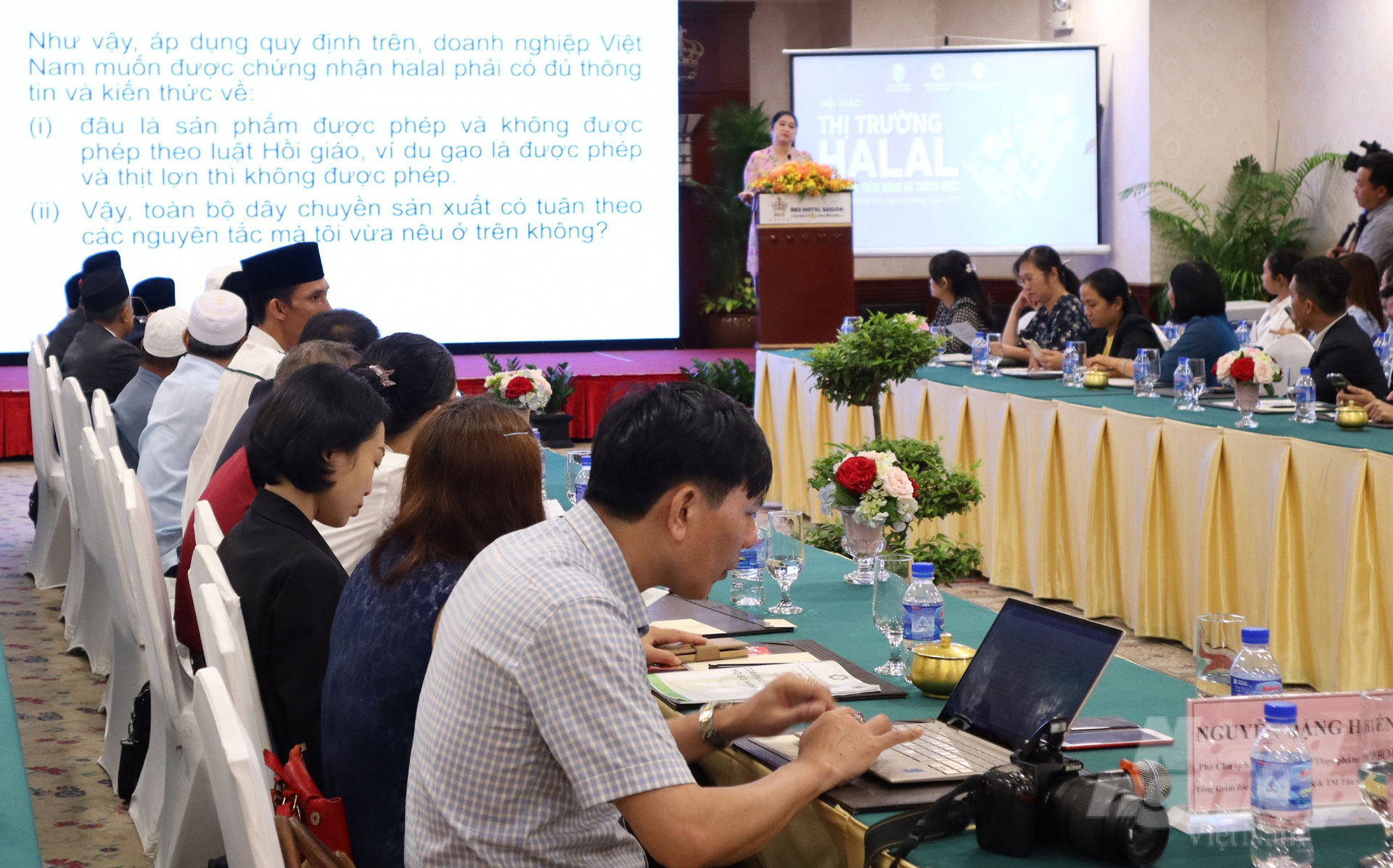
“Hallal Market Seminar: Concepts, Potentials and Challenges” organized by Ho Chi Minh City Business Association (HUBA), Food and Foodstuff Association of Ho Chi Minh City (FFA) and Ho Chi Minh City Investment and Trade Promotion Center (ITPC) the afternoon of 7/13. Photo: Nguyen Thuy.
According to Ms Ly Kim Chi, Vice President of the Ho Chi Minh City Business Association (HUBA), President of the Food and Foodstuff Association (FFA): Currently, the global Halal food market has great potential and is growing rapidly in all continents from Asia, the Middle East - Africa to Europe and America.
The demand for Halal products has increased sharply not only because of the rapid growth of the Muslim population but also reflects the trend of many non-Muslims in major economies such as China, Japan, the US, and the EU... They have increasingly preferred Halal products, due to the high standards of food safety and environment.
The halal industry (an industry that provides standard products and services to Muslims) promises to be one of the potential export industries of Vietnam not only in Malaysia but also in other Muslim markets.
Information to the Malaysian Ministry of International Trade and Industry (MITI), Malaysia's halal export turnover in 2022 will reach RM 59 billion (Ringgit), an increase of RM 23 billion equivalent to nearly 64% compared to the previous year. Malaysia expects the Halal industry to reach RM 113 billion by 2030, contributing 8% of GDP by 2025.
Food and beverages are the main export items in the Halal economy with nearly RM 28 billion of the total value of halal items exported at 47%, up 58% from 2021. This is followed by Halal ingredients, cosmetics and personal care, coconut oil and industrial chemicals.
Besides, the world market for Halal food for Muslims is huge as it serves about 2 billion Muslims worldwide. The size of the global Halal economy will reach $ 7 trillion by 2022 and is expected to grow to about $ 10 trillion by 2028. The market for Halal products is widely distributed around the world, from Muslim to non-Muslim countries.
The level of consumption and use of Halal products tends to increase, expanding to non-Muslim markets as Halal products meet many criteria on food safety, quality and environmental protection. Furthermore, the largest Halal-producing countries in the world are largely non-Muslim countries.
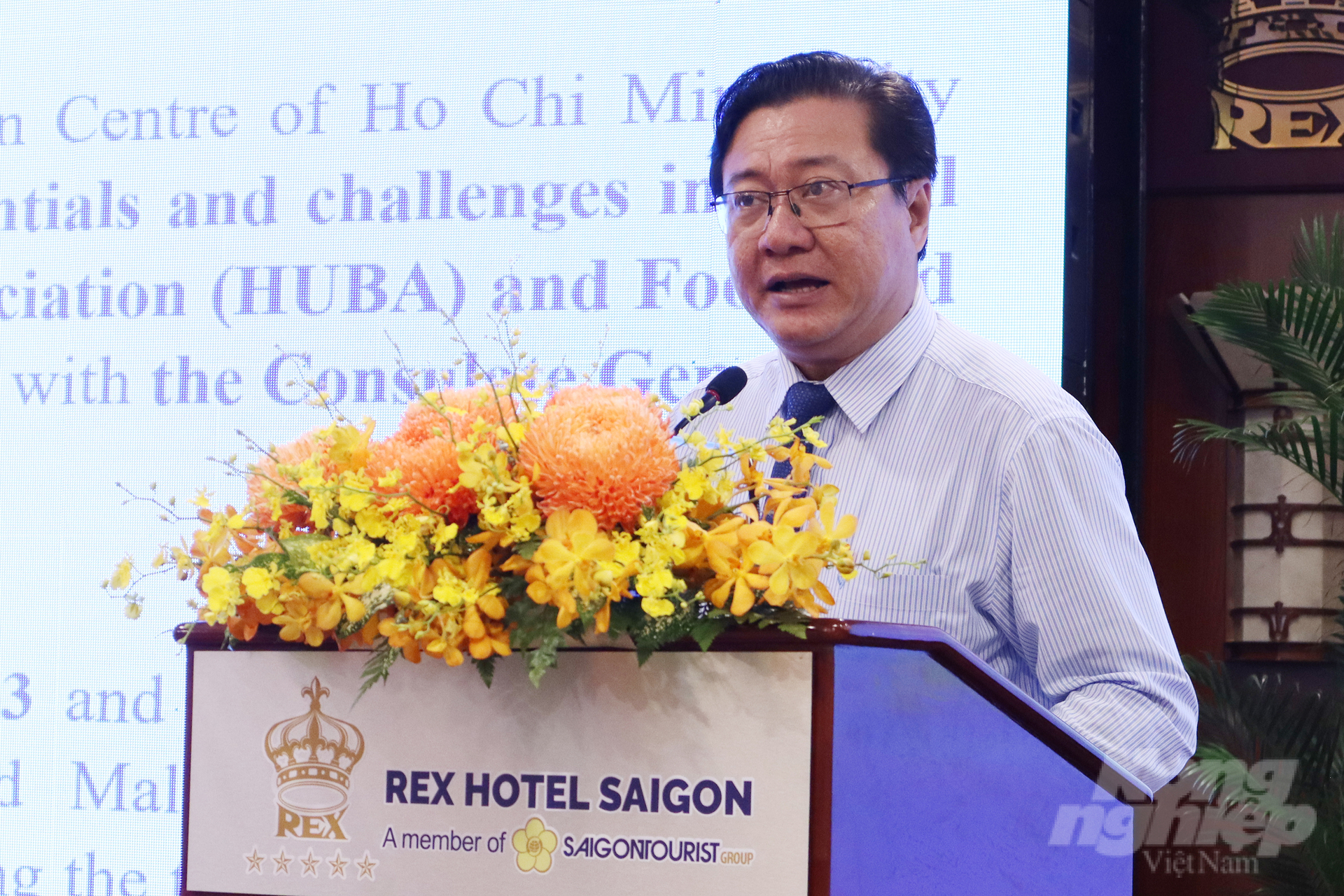
Mr. Nguyen Tuan, Deputy Director of Ho Chi Minh City Investment and Trade Promotion Center (ITPC). Photo: Nguyen Thuy.
"Vietnam is one of the world's major agricultural and seafood exporters, located in a geographical position near major Halal markets. However, our enterprises' food import and export into the Halal market is only in the first step to explore.
Every year, our country has about 50 companies that are certified Halal with the main products being seafood, beverages, canned food, confectionery, vegetarian food and pharmaceuticals", Mr. Nguyen Tuan, Deputy Director of Ho Chi Minh City Investment and Trade Promotion Center said.
According to Ms Ly Kim Chi, Vietnam has many advantages and is a major exporter of agricultural and aquatic products in the world with many typical products such as rice, rubber, tea, cashew, coffee, pepper, shrimp and fish… If utilized and promoted well, it will help Vietnam's exports firmly participate in the Halal product market.
In particular, the geographical location is close to major Halal markets when about 62% of the Muslim population is concentrated in Asia. In Southeast Asia, Indonesia or Malaysia,… populous Muslim countries will be one of the potential markets, familiar to Vietnamese businesses.
FFA President Ly Kim Chi said that Halal standards and regulations are increasingly strict. Halal certification is not permanently valid, and not equally recognized in all countries for all products. This causes a lot of difficulties for businesses because they have to re-certify many times and have to base on each export market to register for certification accordingly.
Ms Wong Chia Chiann, Consulate General of Malaysia, said that Halal food is not only pork-free or alcohol-free. The source of meat or poultry must also come from an approved animal (chicken, cattle, sheep) and must be slaughtered according to Islamic rules to make them Halal.
Therefore, it is necessary to standardize hygiene and ensure cleanliness. Meanwhile, carnivores, amphibians (like frogs), and insects are not Halal. In addition, any contamination from prohibited elements or contaminants makes the food non-Halal.
In terms of packaging/storage, non-halal food and halal food must be stored separately to avoid contamination. The whole production line must be hygienic and not harmful to health.

Ms Wong Chia Chiann, Consulate General of Malaysia. Photo: Nguyen Thuy.
"Vietnamese businesses that want to be certified Halal must have enough information and knowledge about what products are allowed and not allowed under Islamic law. For example, rice is allowed and pork is not allowed.
Halal and non-halal products cannot be produced in the same production line. Removing a non-Halal ingredient will not make the product Halal again. All food sources and hygiene procedures need to be proven during the Halal certification process," noted Ms Wong Chia Chiann.
Mr Machdares Samael, Acting Head of the Representative Board of the Muslim Community of Ho Chi Minh City, said that Halal has expanded to include all kinds of food such as milk, cake, candy, ready-to-eat food, food, beverage, cosmetics, pharmaceutical, tourism, hotel... Notably, some products were not previously subject to Halal standards but are recently forced to meet this standard such as farmed seafood, agricultural products, tea, coffee,...
“In some places, water used to process Halal products also requires Halal certification. Therefore, Halal now has not only religious elements or food safety and hygiene but also Islamic identity and brand elements.
Currently, Halal standards are becoming more and more complete, expanding to many groups of products and tightening quality, including aquaculture products, tea... This will have an increasingly profound impact on Vietnam's exports and services," said Mr Machdares Samael.
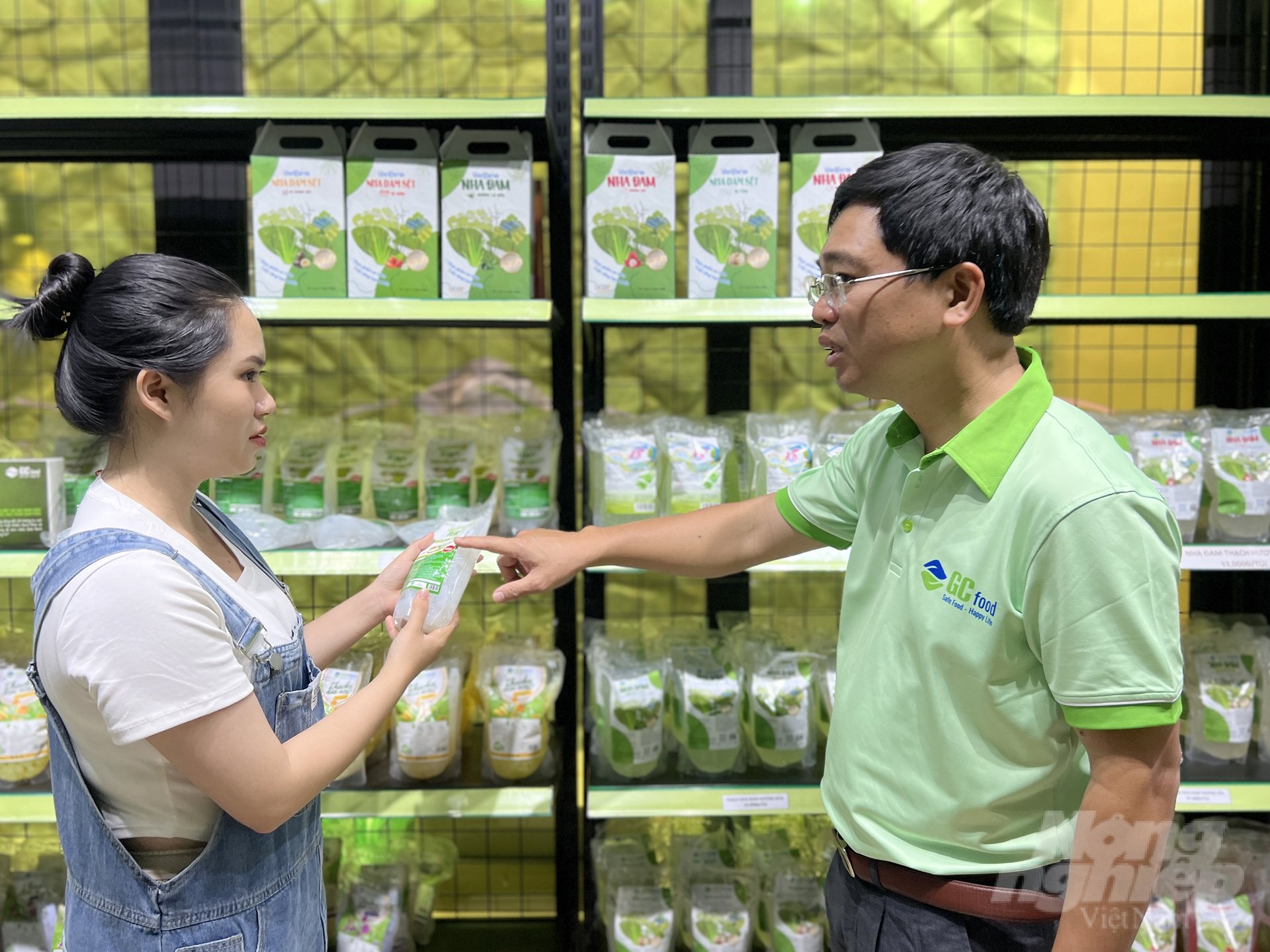
G.C Food's aloe vera and coconut jelly products are Halal certified and have been exported to 20 countries around the world with a large raw material area in Ninh Thuan, Ben Tre. Photo: Nguyen Thuy.
Up to now, Vietnam has not had a state agency certifying Halal standards, instead, there are several private organizations that issue Halal certification.
Because there are many Halal standard systems in the world, Vietnam's Halal certification organizations are forced to work with many Halal certification organizations from other countries to be accepted for Halal certification. This increases the cost of certification.
Those costs are ultimately borne by Vietnamese exporters to the Halal market, thereby reducing the competitiveness of Vietnamese exports.
Besides, for various reasons, Vietnam's Halal certification organizations have not yet approached the increasing requirements of the world Halal industry.
The team of inspectors monitoring the production of Halal products also has certain limitations. Our private Halal certification organizations also do not have the financial capacity to connect regularly with the world Halal accreditation organizations.
For their part, businesses producing and exporting Halal products face difficulties in investing in separate production lines and equipment, safe sources of raw materials to the stages of packaging, transportation, and preservation ... according to Halal standards. This, if not resolved, will limit the ability of Vietnamese businesses to keep and expand the Halal market. The Halal market is full of potential, both a challenge and an opportunity for Vietnamese businesses. The determination of Muslim countries to systematize Halal standards on the one hand is creating barriers for goods to be exported to these markets. It will also create opportunities for businesses to be agile, take advantage of opportunities and adapt to new contexts.
Sharing the experience of complying with the production of products according to Halal certification requirements, Mr Nguyen Dang Hien, Chairman of the Board of Directors, General Director of Tan Quang Minh Manufacturing & Trading Co., Ltd, said that Muslims only buy Halal products as a proof of faith that Allah allows the use of that product.
Therefore, businesses should be careful not to talk about different religions, not to advertise sensitive images (women, other religions) on product packaging, payment methods or D/P use, money transfer, deposit, in advance, and seldom use L/C. Product packaging must be in Arabic. Arabs like to contact directly with partners with samples.
Translated by Hoang Duy
/2025/05/22/5250-1-184853_288.jpg)
(VAN) According to a representative from the Central Retail Vietnam, Vietnamese products such as seafood, sweet potatoes, dragon fruit, coffee, and spices hold great potential in the Thai market.
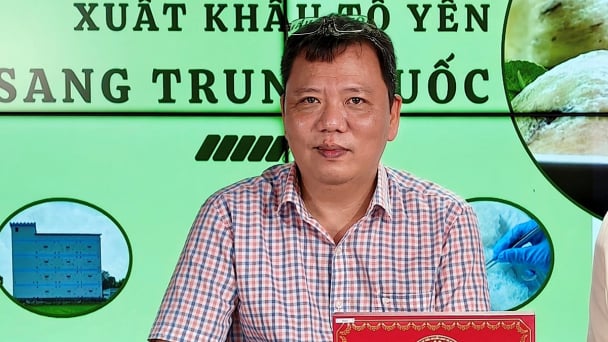
(VAN) A multi-channel, multi-directional strategy only works when the agricultural value chain meets global transparency and SPS standards.
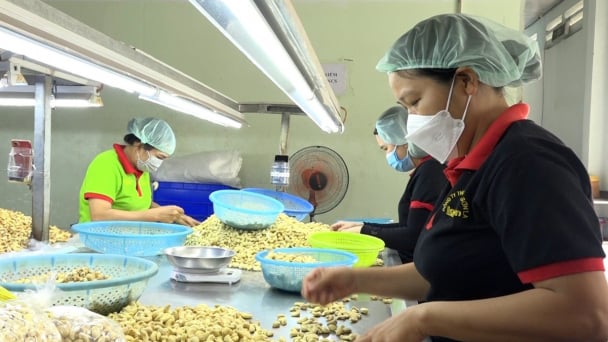
(VAN) Market expansion is a matter of survival for Vietnamese businesses amid fierce competition and global supply chain fluctuations.
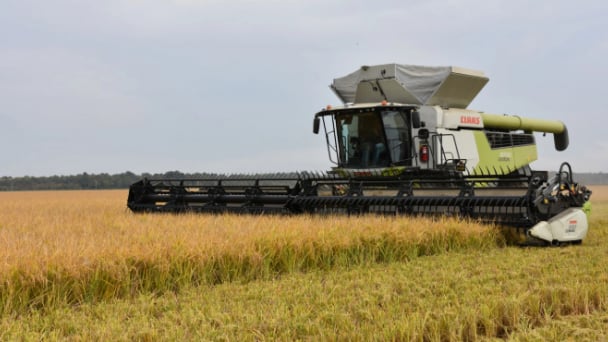
(VAN) Global market prospects for U.S. long-grain rice for the upcoming marketing year.
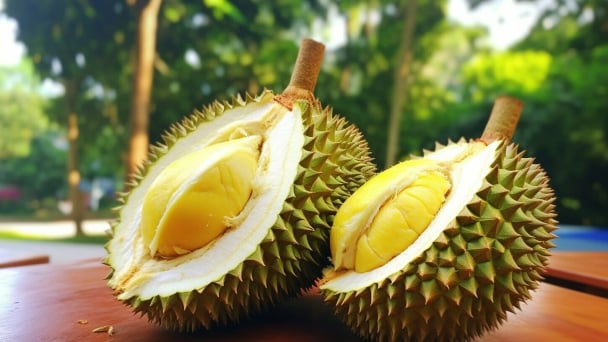
(VAN) China’s General Administration of Customs started permitting fresh durian shipments from Cambodia after a phytosanitary protocol was signed with the Cambodian Ministry of Agriculture in late April.
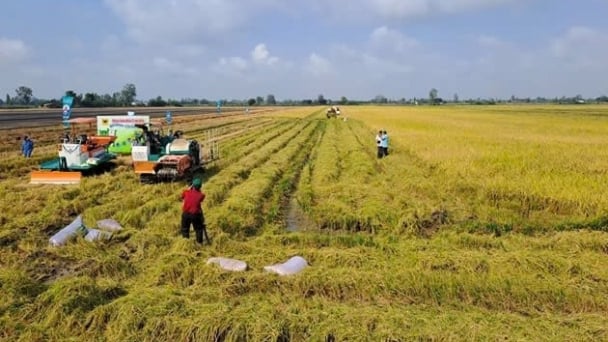
(VAN) To operate carbon market, one of the key issues is determining which types of 'commodities' meet the standards to be traded on the market.
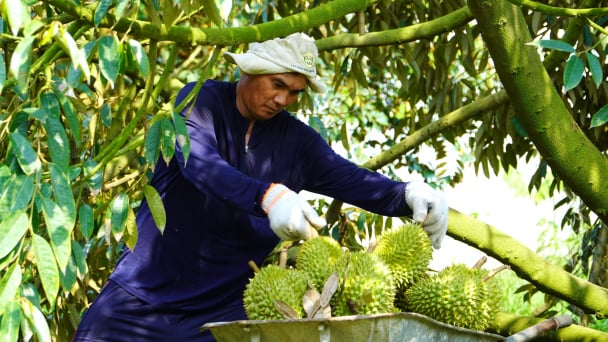
(VAN) Durian-producing localities need to coordinate more effectively with central authorities to improve the traceability, monitoring, and response systems in case of violations.